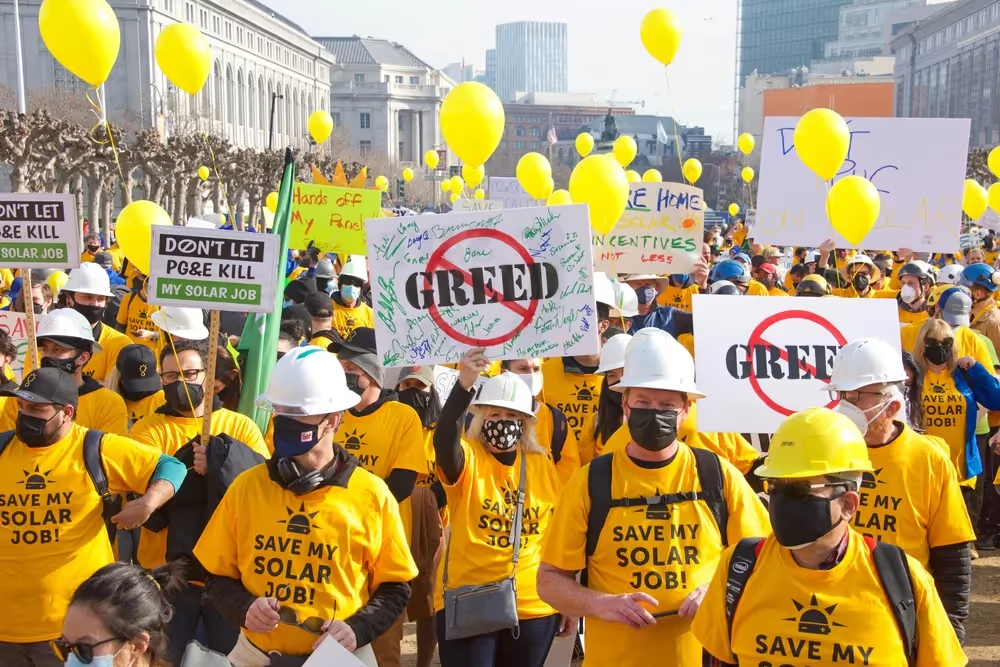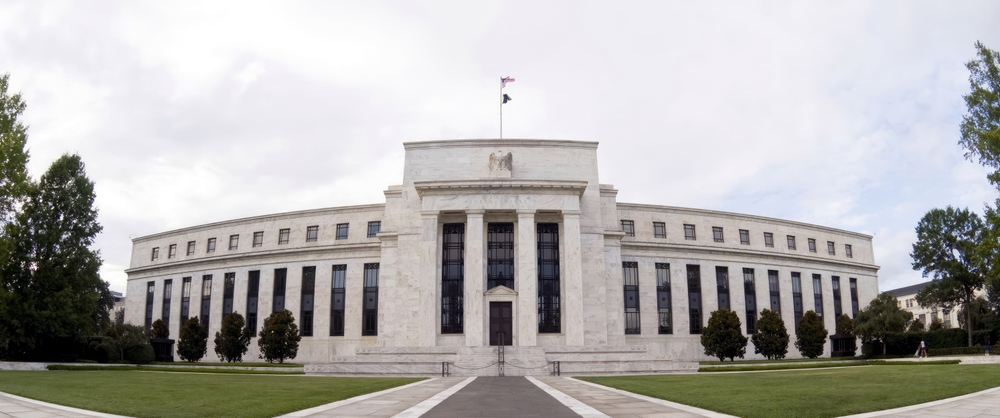
Adventures Among the Abundanauts
The progressive Abundanauts deserve one and maybe two cheers for pointing out the dead end of "everything bagel liberalism," but until Democratic leaders decide to take the risk of saying No to their activist base, it will be a flash in the pan.
"Abundance liberalism" is the hot new idea making waves and provoking fierce internal debate among the progressive intelligentsia recently, championed by authors such as Ezra Klein and Derek Thompson in their best-seller, Abundance, and Marc Dunkleman's Why Nothing Works: Who Killed Progress and How to Bring It Back. The thesis, in short, is that excessive government regulation—especially in blue states—has badly hampered economic growth (who knew?), and that progressives should embrace a pro-growth agenda that involves reducing overregulation and endless process. Klein calls it "everything bagel liberalism," that is, regulation that tries to satisfy every ideological or group demand, while Dunkleman describes our current governance as a "vetocracy."
Klein originally called this impulse "supply-side progressivism," and I once asked Klein if he had a curve he could draw on a napkin, because if not, it was only sparkling neoliberalism. (He didn't even crack a smile.) This is the first clue that the idea may not be new at all, except to a younger generation of progressives who, as usual, lack sufficient historical knowledge. Back in those long-ago heady days of the John F. Kennedy Administration, which ran in 1960 on the slogan "Let's get the country moving again," the policy agenda that included cutting income tax rates and building more public works was self-consciously known as "growth liberalism."
But within a decade, liberalism had abandoned the optimistic creed of "growth liberalism" in favor of the "limits to growth," with leading Democrats such as Jerry Brown and Jimmy Carter embracing the idea and the constricting philosophy behind it, which was the core principle of the fast-rising environmental movement. In practice, this meant expanding the power of the administrative state to new and often amorphous objects such as "sustainable development," which in reality always meant "less development" and higher costs for producers and consumers alike.
Thus, if the core political difficulty with the new "Abundance Liberalism" is to be fully appreciated, it is worth revisiting the 50-year-old story of the forerunner to Klein and the Abundanauts (as I am calling them).
Back in 1975, Professor Bernard J. Frieden, director of the MIT-Harvard Joint Center for Urban Studies, came to UC Berkeley for a year as a visiting professor, interested in learning about how America's then fastest-growing state was accommodating the surging number of baby boomers aspiring to homeownership. He knew that California was at the forefront of new regulations to protect the environment that might lead to some political and legal conflicts, and thus, the ideal place to study a new regulatory equilibrium he expected would spread across the nation. What he discovered, even at this early time, shocked him. Keep in mind that at the time of Frieden's visit, median home prices in the Bay Area were at the national median home price; today, the Bay Area's median home price is two and a half times higher than the national median.
"I expected to find local governments striking reasonable balances between housing and environmental goals," Frieden wrote; "Yet the number of environmental controversies was remarkable, and the outcomes seemed anything but balanced." Frieden's resulting study, published in 1979 by MIT Press, was The Environmental Protection Hustle. Frieden notes that it is hard to measure precisely how much regulation adds to the cost of housing, but through a series of case studies in the Bay Area Frieden was able to count how the newly aggressive "environmental review process" reduced the number of houses built from the number initially proposed by half, and all with much higher prices than initially proposed. Frieden noted the inconsistency, hypocrisy, and perverse results, such as encouraging suburban sprawl, something environmentalists purport to oppose.
He stated his conclusion with direct and bracing language rather than in typical jargon-filled academese: "The review process is highly political, and the people with the greatest stake in its outcome—housing consumers—play no part in it." He asked "whether government action is creating problems of inequity by imposing substantial costs on some people in order to produce benefits for others."
The strangling environmental reviews and regulatory burden launched in California has only grown and spread to much of the rest of the county¬—except for some red states like Texas and Florida that have remained more housing-friendly. More than once in recent years, Harris County, Texas (Houston), with a population of 4.8 million, has built more housing units than the entire state of California, which has a population of 39 million. High housing costs are a significant factor contributing to the current population exodus from California. (California's current median home price: $904,000; U.S.—$408,000; Texas—$335,000.)
Mainstream economists increasingly conclude that the cumulative weight of environmental regulation since 1970 accounts for slower economic and wage growth, and that reduced housing production is a major component of this stagnation. As economists Edward Glaeser (Harvard) and Joseph Gyourko (Penn) point out in a new paper for the National Bureau of Economic Research, if we had continued building housing at the same rate as the years 1980 - 2000, we'd have built 15 million more housing units over the last 20 years than were built.
Although Frieden's work was limited to housing development, the excessive and abusive regulatory process that arose first in housing in California soon spread to every kind of new development, from roads, high speed rail, water projects, long distance power lines, new industrial plants, not to mention mineral exploration and forestry, especially on federal land.
Frieden erred in predicting at the end of his book that the environmental movement would become more reasonable and adopt "a more considered ideology." Instead, it became more intransigent and aggressively opposed to growth with every passing year. Still, his book should be considered a classic that ought to be (but isn't) required reading for policy wonks. The reception of Frieden's book ought to be a warning for the Abundanauts.
While Frieden was no conservative or libertarian by any means, most academic reviewers treated him as such for the lese majeste of criticizing the newly exalted environmental movement. Urban Affairs dismissed it as "patently one-sided." William K. Reilly, a future Republican EPA administrator, criticized the "contentious and polemic" tone of the book, whose "rhetoric limits the book's effectiveness." Such was the cost of using plain language to describe the fundamental change taking place.
I doubt Klein and the other Abundanauts have ever heard of Frieden's prescient book, but that is emblematic of what is most annoying about these recent progressive converts to deregulation: they act as though they have discovered the defects of government regulation for the very first time. There is no acknowledgement that conservatives have been making substantive critiques of government regulation for decades. There is no indication that the Abundanauts are even aware of public choice theory, or any of the scholarly work of close students of regulation such as George Stigler, William Fischell, Robert Ellickson, Richard Epstein, Dale Jorgenson, Friedrich Hayek, Thomas Sowell, and many others too numerous to list.
This is the flip side of confronting the practical political elephant in the room. To achieve the new economy of abundance they seek requires saying a firm "No!" to the entire apparatus of Democratic Party constituency groups, especially the environmentalists, who derive their power from the ability to use lawsuits and bureaucratic process to say no. To be serious, it would involve mass layoffs of environmental attorneys and bureaucrats, the contraction of private consultancies that make big bucks producing 3,000-page environmental impact reports that no one reads all the way through, and the marginalization of obstruction. The Abundanauts are far too timid to call for this directly.
We've already seen how ferociously the environmental industrial complex will fight for its prerogatives with the failure of a modest bi-partisan federal permitting reform bill in the last Congress, when it became evident that bureaucratic process was a formidable obstacle to building out much of the new green energy of President Biden's so-called "Inflation Reduction Act." Environmentalists wanted to limit permitting relief only to green energy projects, but not to other types of projects, which killed the chances for passage. The greens would rather have nothing toward their ends than open up the process for other kinds of development.
To their credit, Klein and Thompson reject limiting regulatory relief just to favored progressive ends like green energy, but they're unwilling to proceed to the Sister Souljah moment the logic of their argument demands. But how likely is it that there will be any political support on the left for the necessary bureaucratic house-cleaning and legal reform? Does anyone think environmentalists will compromise on reforms to the Endangered Species Act?
The closest the mainstream left comes to compromising with the Abundanauts is to say it might work if the agenda somehow reduces "corporate power." However, no one has yet explained how Texas and Florida are prospering without an anti-corporate purge. The progressive Abundanauts deserve one and maybe two cheers for pointing out the dead end of "everything bagel liberalism," but until some Democratic political leaders decide to take the risk of saying No to their activist base, it will be a flash in the pan.
Steven F. Hayward is the Edward Gaylord distinguished visiting professor at Pepperdine University’s School of Public Policy.
Economic Dynamism

The War on Disruption
The only way we can challenge stagnation is by attacking the underlying narratives. What today’s societies need is a celebration of messiness.

Unlocking Public Value: A Proposal for AI Opportunity Zones
Governments often regulate AI’s risks without measuring its rewards—AI Opportunity Zones would flip the script by granting public institutions open access to advanced systems in exchange for transparent, real-world testing that proves their value on society’s toughest challenges.

Downtowns are dying, but we know how to save them
Even those who yearn to visit or live in a walkable, dense neighborhood are not going to flock to a place surrounded by a grim urban dystopia.

The Housing Crisis
Soaring housing costs are driving young people towards socialism—only dispersed development and expanded property ownership can preserve liberal democracy.

Blocking AI’s Information Explosion Hurts Everyone
Preventing AI from performing its crucial role of providing information to the public will hinder the lives of those who need it.

Kevin Warsh’s Challenge to Fed Groupthink
Kevin Warsh understands the Fed’s mandate, respects its independence, and is willing to question comfortable assumptions when the evidence demands it.



.avif)
.jpeg)




.jpg)



.jpg)

